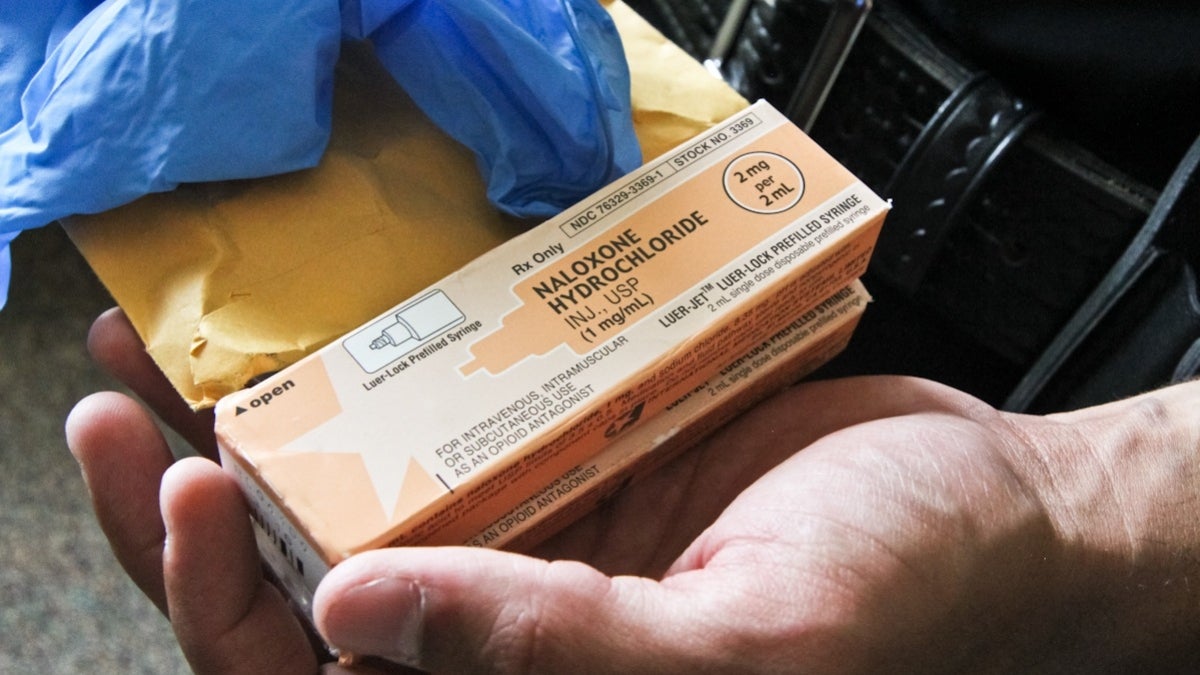What declaring the opioid crisis a national emergency means for Pennsylvania

Naloxone is a medication used to reverse the effects of an opioid overdose. (Kimberly Paynter/WHYY, file)
Pennsylvania could see more resources to combat the opioid crisis if President Donald Trump heeds a federal commission, which advised him earlier this week to declare a national emergency.
The President’s Commission on Combating Drug Addiction and the Opioid Crisis issued an interim report with a number of recommendations, declaring a national emergency chief among them; and doing so would free up federal funds.
More than 4,000 Pennsylvanians fatally overdosed on opioids in 2016, but the drugs also wreak havoc on the living, said Abby Wilson, deputy director of policy with the Allegheny County Health Department.
“You have lost opportunity costs, as far as individuals’ employment, their productivity at work, their ability to support a family and participate meaningfully in a community,” she said. “I’ve heard many people describe addiction as … a disease of isolation.”
More than 600 people died of opioid overdoses in Allegheny County last year alone.
The department has been creative with the funds they have, but more is needed, said Wilson.
“This is kind of an all hands on deck moment for sure, and it doesn’t seem to be getting better,” she said. “That’s another thing that is very alarming to us.”
Synthetic opioids such as fentanyl are more powerful than heroin, and increase the need for naloxone, the overdose reversal drug carried by many law enforcement agents.
“The status quo isn’t enough, so we’re constantly rethinking our work,” said Wilson.
Wilson said she was encouraged by the commission’s other recommendations: to provide better access to medication-assisted treatment, and for doctors to share information about patients vulnerable to substance abuse, among others.
WHYY is your source for fact-based, in-depth journalism and information. As a nonprofit organization, we rely on financial support from readers like you. Please give today.

